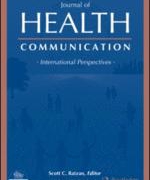Camels and SMS: Transporting vaccines in resource poor areas
The PATH initiative, which advances malaria vaccines, recently predicted that over ten times more vaccine storage will be needed in the developing world over the next 15 years. However, transporting and managing vaccines in developing countries faces many obstacles, including inhospitable climates, poor infrastructure, lack of electricity and disparate communities.
As a result, over 1 million people die every year in developing nations due to vaccine-preventable diseases. In some cases, vaccines may be reaching these populations, but when they do, they are no longer functional because they were not adequately cooled. Most vaccines must be stored within a certain temperature range in order to remain functional. Health organizations are increasingly turning to technology to help them do just that.
Many NGOs and ministries of health make use of mobile vaccine refrigerators that harness solar energy to power the internal chamber that holds the vaccines. A particularly innovative and resourceful vaccine refrigerator came on the backs of camels. Naps’ Camel Fridge was designed back in 2005 and operates off of solar power. The fridge uses solar panels to harness energy, and sits on the backs of camels that transport the fridges to rural destinations. Over 1,500 of these camel fridges have been sold to WHO and UNICEF programs.
But if a shipment of vaccines arrives spoiled, it is important to know where in the logistics chain the temperature was breached so that changes can be made to prevent a recurrence.
However, some issues with these mobile refrigerators are temperature maintenance and vaccine spoilage. A practical gadget that has made cold chain storage more efficient is a technology that involves vaccine monitoring. SmartConnect, a technology developed by Inveneo that uses existing cell phone networks for data communication, can monitor vaccines by sending information about the arrival time and temperatures of vaccines in transit. That way, officials will know not only if a vaccine has spoiled, but when and where the problem may have occurred.
SmartConnect is not the only project making use of SMS technology. True Energy’s Sure Chill Vaccine Refrigerators, which are WHO pre-certified, can store vaccines at a constant optimal temperature, without power, for up to ten days while using a vaccine vial monitoring system that records temperature changes and can send an SMS to indicate those changes.
True Energy has already shipped multiple units to Senegal and Vietnam under project Optimize, a WHO/PATH collaboration, and aims to ship many more units to countries like South Sudan, Kenya, Nigeria, Yemen, India and many more.
Incorporating mobile monitoring technologies and improving the efficiency of the fridges could make a tremendous impact on the success of many vaccination programs. And if PATH’s prediction rings true, they will be greatly needed.








































